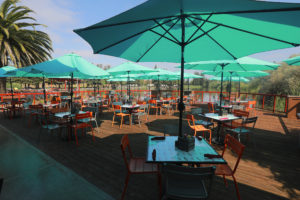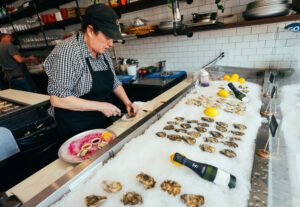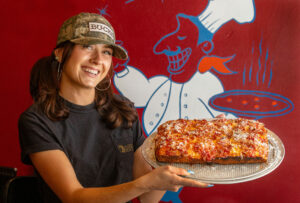In September, Sonoma County’s Board of Supervisors will consider whether to issue permits to residents who would like to cook and serve meals from their private homes, or to people who would like to use their homes as commissary kitchens.
For some, home-based restaurants represent a challenge to neighborhood peace and quiet. But for others, a home-based restaurant is a low-cost first step into a notoriously challenging industry with high barriers to entry—a way to experiment with ideas or perhaps bring in some extra cash.
This particular type of business is known as a MEHKO, or microenterprise home kitchen operation. MEHKOs are allowed under a California law passed in 2018 which permits the preparation, sale, and consumption of meals from a person’s home—if (and it’s a big “if”) the person lives in a county that has decided to opt into the MEHKO program.
Right now, Sonoma is one of approximately 40 counties in the state which have yet to opt in. According to The Institute for Justice, a public interest law firm that has advocated for the adoption of MEHKO legislation, just 30% of Californians currently live in a county where they can participate in the MEHKO program.
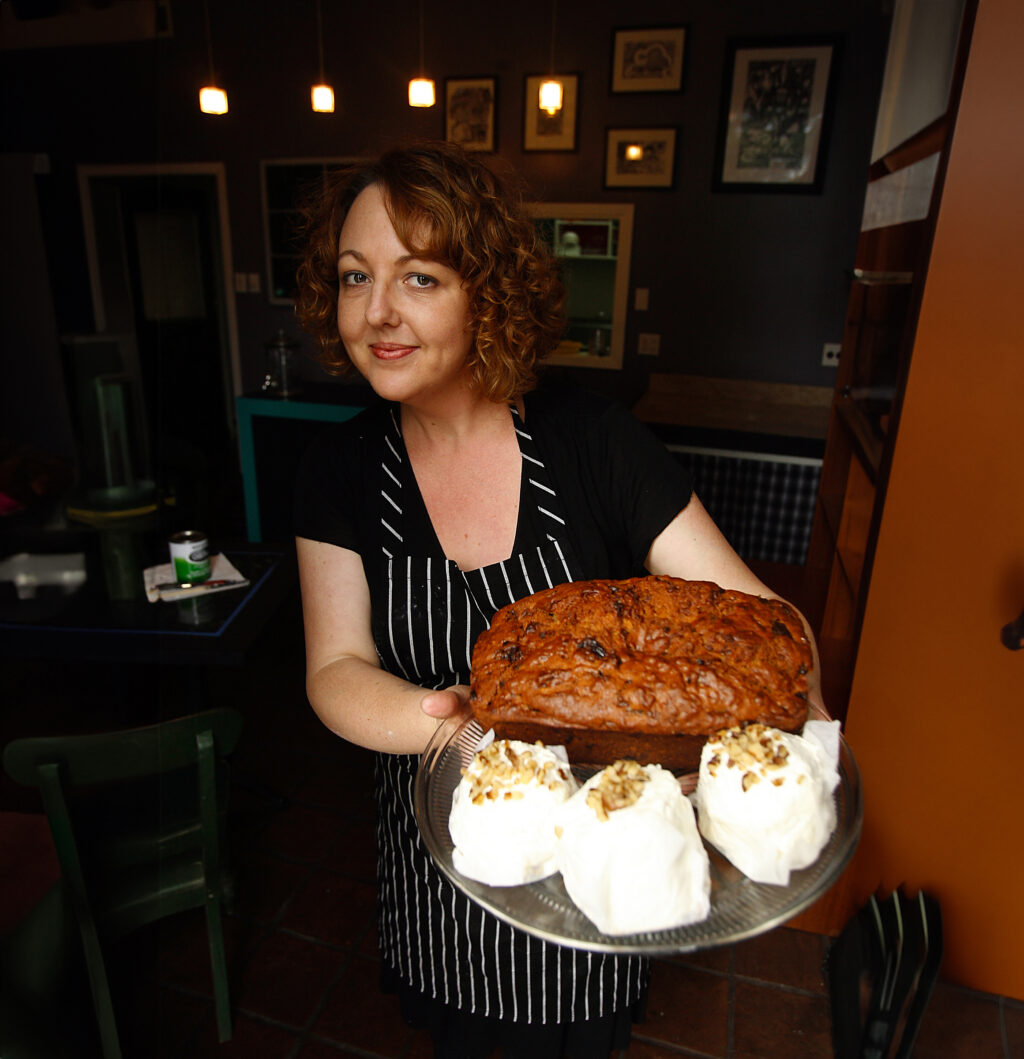
Dawn Zaft of Santa Rosa is one of the Sonoma food business owners for whom MEHKO might have made a difference. In early 2012, Zaft started baking on a small scale in her home, unpermitted and on the down-low, to make some extra money. The name she chose for her micro-operation— Criminal Baking—was a mix of tongue-in-cheek humor and radical honesty.
“And then immediately I was like, ‘Oh, I probably shouldn’t do that; I’m gonna attract the wrong kind of attention.’ But it ended up being that the name really served me,” she says.
Zaft initially baked only for the cafe where she was already working part time as a barista. She didn’t make much money, but her entrepreneurial skills grew—and that meant legitimizing her operations.
In 2012, California passed AB 1616, the California Homemade Food Act, a different bill which allows people to prepare, package, and sell certain types of foods from a private home kitchen. As the bill passed, Zaft says she got the proper permits and moved into a commercial kitchen space nearby. And from there, her business has continued to grow.
These days, Criminal Baking is a fixture of Santa Rosa’s food scene, with a permanent cafe in the West End neighborhood, where Zaft has become known for her savory and sweet pies and towering breakfast sandwiches. She’s expanding her Sunday supper service, too. Zaft’s early side hustles provided an important path into the restaurant business.
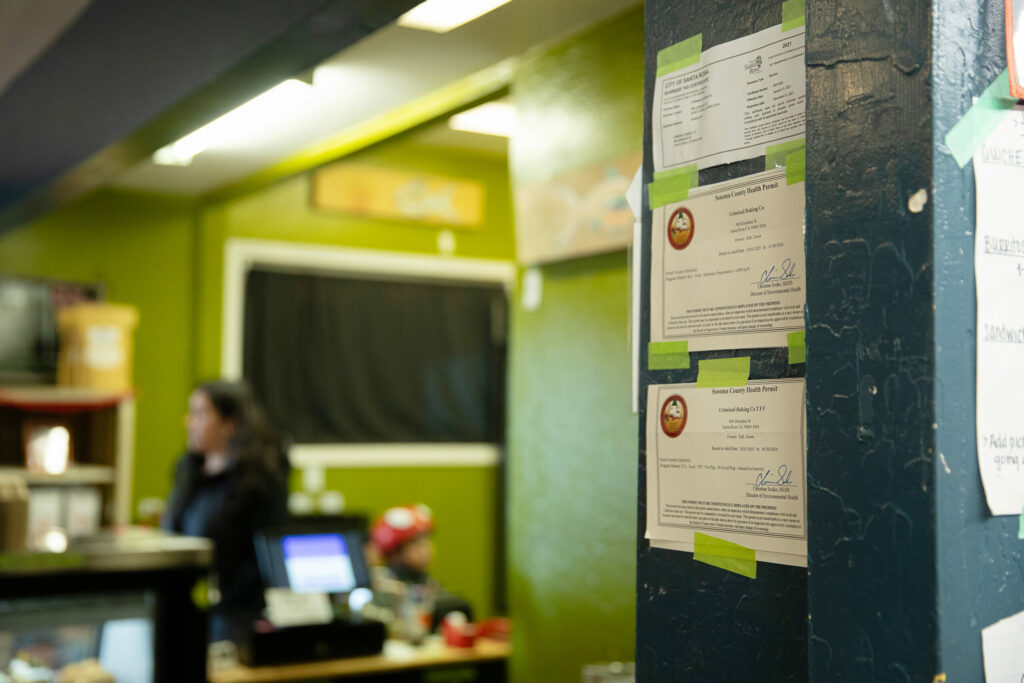
Supporters of MEHKOs say that they’re an important way for small-scale entrepreneurs like Zaft to innovate and test the market, and that not everyone can afford to start a restaurant through traditional means—especially here in Sonoma County, where rent and other start-up costs can be prohibitively expensive, particularly in the long shadow of the pandemic.
And MEHKOs can be a good source of income. Under the law, operators are allowed to earn up to $100,000 per year and sell up to 30 meals per day, with a further limit of 90 meals per week. And MEHKO permit holders are allowed to prepare and sell more kinds of foods than is allowed with a cottage food operation permit.
Santa Rosa’s Jeremy Clemens started his pizza pop-up, Gabacool Provisions, just after the pandemic, when he realized he no longer wanted to invest 96 hours a week running a business for someone else.
“What if I put that energy into doing something for me, you know?” he explains. “Pizza is something I still find fun. And every, every bit of it is a challenge.”
The name of the business, which Clemens co-owns with his partner, Michele Querin, is a nod both to Clemens’ Italian-American heritage and an insider reference to one of his favorite TV series, “The Sopranos.” And who’d know better about keeping things quiet than the mob?
Clemens first made test pizzas in his kitchen, focusing on his dough recipe—at first, a sourdough, then a yeasted dough. He tracked everything, from the grams of flour in the sauce to the ratio of salt in his homemade tomato sauce.
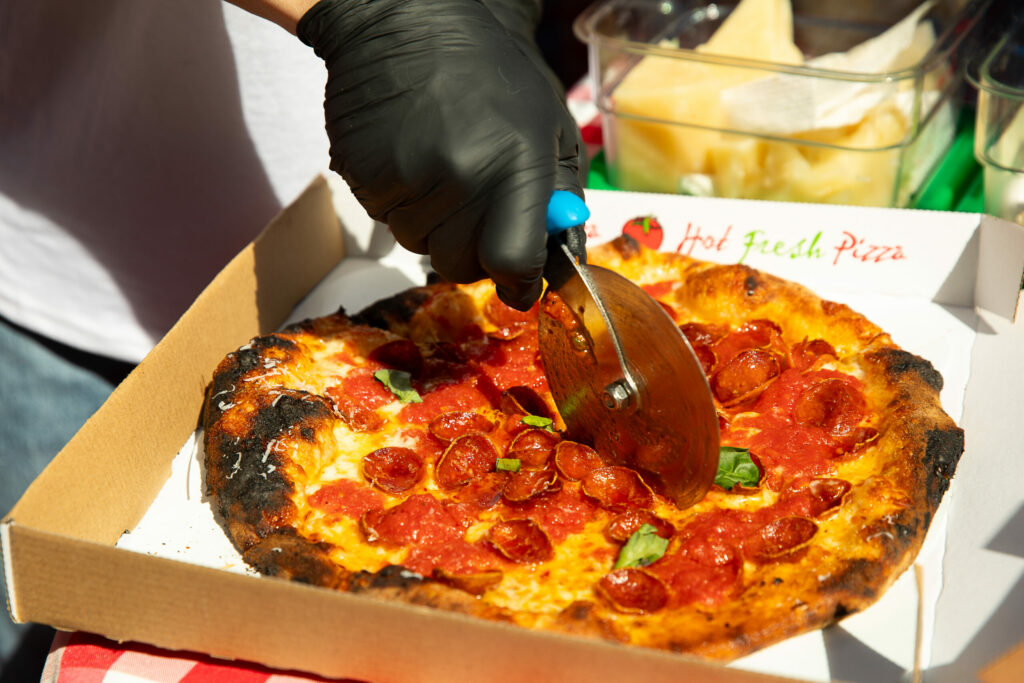
In August 2022, he left a position as executive chef at The Stavrand Russian River and went into full-on pizza mode. He held pop-ups for his Detroit-style pizza, until recently without any kind of permit, encouraging people to keep it “on the DL.” And like Criminal Baking, Gabacool Provisions is now a permitted business, though Clemens still works another job for additional income.
Private chef David Mau, who splits his time between Southern California and the Russian River area, has worked in professional kitchens for decades and has a good sense of the costs and pitfalls of opening a traditional brick-and-mortar restaurant. Mau believes that for most smaller operators, there’s little money to be made in owning a traditional restaurant: he says opening a brick-and-mortar restaurant could cost a million dollars or more—and even if running a tight ship, most owners or investors can expect profit margins of less than 10%.
Mau has found his niche as a private chef, working in private homes or vacation rentals for small groups of eight to 20 people. He thinks the difference between his work as a licensed and permitted private chef and someone operating a MEHKO is simply a matter of semantics.
“It’s basically the same experience,” Mau says.
Opponents of MEHKOs raise concerns over noise and parking and point out that there are other options for those who would like to start a small food business at a low cost, such as sharing a kitchen space or starting out with a mobile food cart, pop-up or food truck.
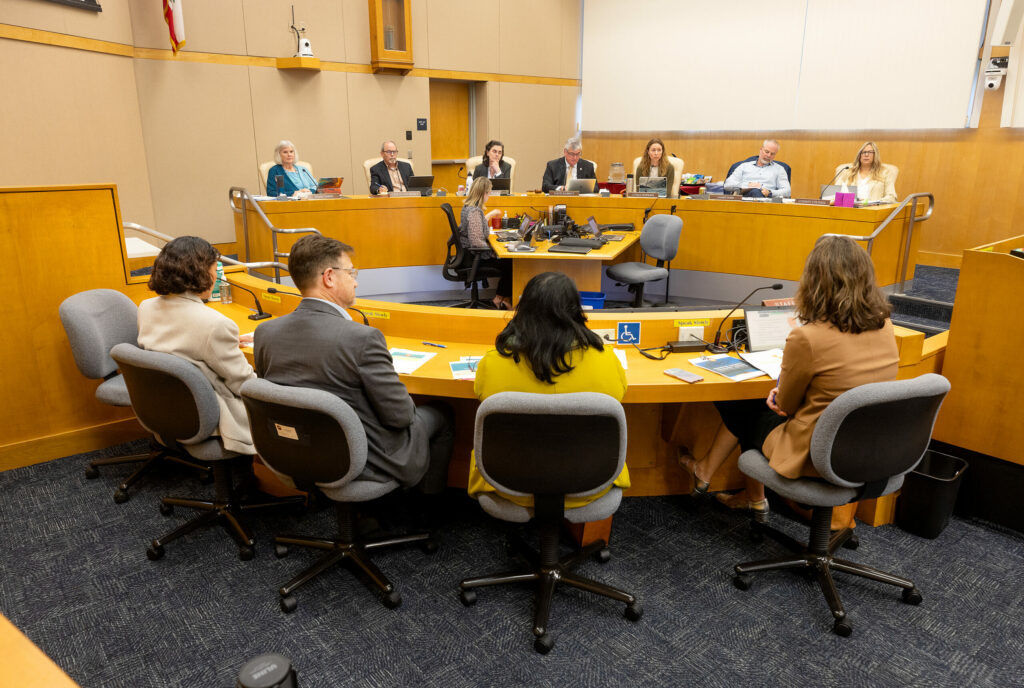
A 2019 push to approve MEHKOs in Sonoma County was led by local advocates and supervisor Lynda Hopkins. Their efforts fizzled after a Board of Supervisors meeting was bogged down over concerns about noise and parking in neighborhoods, as well as technical questions about environmental regulations and grease traps.
Hopkins helped place the issue back on the agenda this coming September. “I wish it were sooner; it feels like a long time to wait,” she says.
In 2021, local city managers were contacted by the county for feedback on the possible adoption of MEHKO legislation. Santa Rosa and Petaluma were in support of the program, but other city managers wrote back with concerns over safety code compliance, land use impacts, enforcement concerns and the impact on existing businesses.
Sebastopol’s planning director expressed concern over whether MEHKOs might increase vacancies in the city’s commercial districts. And Rohnert Park’s city manager responded with concerns about safety threats in homes lacking proper emergency signage or proper equipment to suppress fires. There are also concerns about staffing and inspections— though the state offers some grant money to help counties set up their MEHKO programs.
“If there are state funds available to actually implement this, and to support economic development, we shouldn’t be leaving those dollars on the table,” says Hopkins.
She believes MEHKOs could be a moneymaker for working families in Sonoma County who are trying to make ends meet.
Private chef David Mau says he doesn’t believe home restaurants like the ones supported by MEHKOs are much of a threat to Sonoma’s existing restaurant culture. In fact, they can be a boon to it.
“I actually think that that idea of a home kitchen, with people making food in it that really care, can actually drive restaurants, in a cultural and culinary sense.”
What’s Your View?
Sonoma County’s Board of Supervisors is scheduled to discuss opting into the state’s microenterprise home kitchen program at their Sept. 24 board meeting. Residents can reach out to their county supervisor to share opposition or support. sonomacounty.ca.gov


